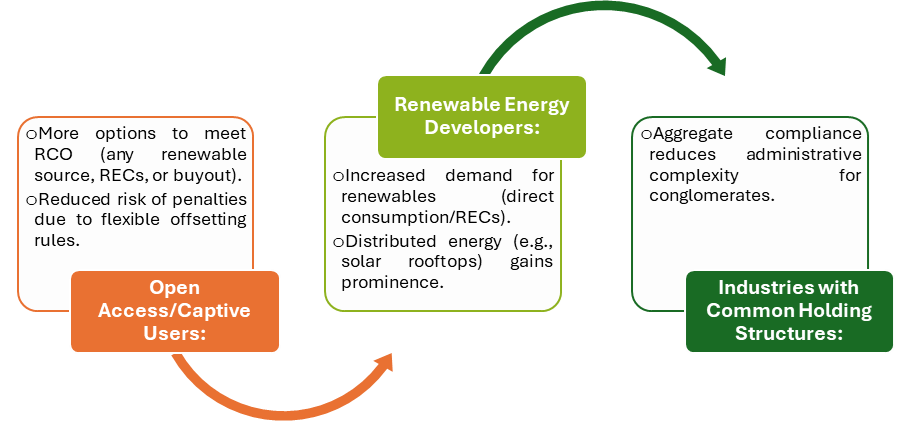Govt of India Proposes Key Amendments to Renewable Consumption Obligation (RCO) to Boost Green Energy Adoption
- RE Society of India RESI

- Apr 1, 2025
- 2 min read
In a significant move to accelerate India’s transition to clean energy, the Ministry of Power has unveiled draft amendments to the Renewable Consumption Obligation (RCO) framework. The amendments introduce greater flexibility, stricter compliance mechanisms, and incentives for renewable energy adoption. The amendments aim to strengthen the existing RCO norms notified in October 2023, ensuring wider participation from industries, distribution companies, and captive power consumers.

The new draft explicitly includes electricity distribution licensees, open access consumers, and captive users under RCO. Specifies that for open access and captive users, the obligation applies only to electricity consumed from sources other than distribution licensees.
Key Highlights of the Draft Amendments

New Compliance Mechanisms: Renewable obligations can be met through: (a) Direct procurement of non-fossil power (including via energy storage); (b) Purchase of Renewable Energy Certificates (RECs); and (c) Payment of a buyout price, with funds directed to a Central Energy Conservation Fund for future renewable projects.
Stricter Enforcement & Penalties: Non-compliance (shortfalls, incorrect reporting) will attract penalties under the Energy Conservation Act, 2001. The Bureau of Energy Efficiency (BEE) will monitor compliance and issue detailed guidelines for implementation.
Who Benefits?

“The revised RCO framework strikes a balance between enforceability and practicality. The inclusion of distributed renewables and cross-category adjustments will drive faster adoption, especially among energy-intensive industries.”
Why This Matters
India has committed to 500 GW of non-fossil energy capacity by 2030, and the RCO amendments are a critical policy lever to ensure industries contribute to this goal. By tightening compliance while offering flexible pathways, the government aims to accelerate renewable energy integration without disrupting industrial growth.
Key Potential Outcomes:

Beneficiaries:
REC market liquidity and pricing stability need improvement, and the enforcement of penalties may face delays (typical in regulatory frameworks) with the earlier regulations. Therefore, the amendments could accelerate renewable adoption, especially among captive users (e.g., industries with high energy demand).

The draft amendment balances flexibility with stricter compliance, benefiting renewable energy stakeholders while pushing India closer to its climate targets. However, success hinges on effective implementation and market mechanisms (e.g., RECs). Industries should assess their renewable strategies to leverage the new provisions.


_edited.jpg)



Comments